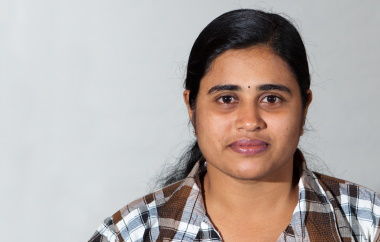PhD in Natural Resource Management
Current position: Postdoctoral Fellow at Leibniz Centre for Agricultural Landscape Research, Germany
Research focus: sustainable natural resource management with a particular focus on river basin governance
Since 2016, Dhanya serves as a member of the Board of Directors at the Foundation for Environmental Research and Innovation, India. Besides, she has been a research fellow at the University of Bremen, Germany, and the National Centre for Earth Science Studies, India.
2019 DAAD-Leibniz postdoctoral fellowship
2014 German Chancellor Fellowship for Young Leaders by Alexander von Humboldt Foundation
2011 Young Geographer Award from National Association of Geographers, India
CV as submitted for the Green Talents award (2012):
Centre for Earth Science Studies, India
Research focus: micro-level natural resources and environmental management
Dhanya Vijayan takes an interdisciplinary, participatory approach to natural resources management planning, putting her faith in micro-level solutions for sustainable development.
When it comes to natural resources management and sustainable development, Green Talents winner Dhanya Vijayan is certain of her approach. “Many of the environmental problems we face today are of societal origin,” she says. “An anthropocentric approach is needed to tackle them.”
Vijayan sees an intrinsic link between environmental protection and the eradication of poverty. “Survival needs compel the poor to continue to exploit already degraded ecosystems,” she explains. Her most recent research project in Kerala State, which involved environmental management planning at the micro level, has shown that participatory governance and stakeholder involvement at the lowest level are the most effective tools for raising awareness, generating rural employment, and effecting sustainable resource conservation and utilisation.
Equally clear are her results, which include a long list of locally-driven achievements – from rainwater harvesting and pond restorations to modifying drainage systems. “Self-help groups are the key to meaningful environmental management programmes and poverty reduction,” says Vijayan, encouraged by the evidence of long-term environmental and socio-economic improvements.
The jury commends Vijayan for her research in the area of sustainable regional development and lauds her use of participative methods. The jury describes her strategy of combining standard of living enhancement of local populations with eco-friendly natural resource utilisation as effective and worthy of further exploration.






